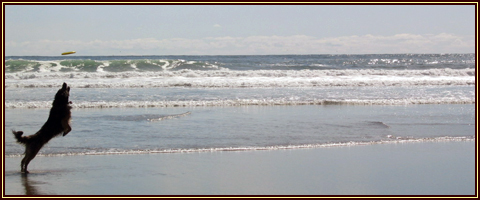I cannot count the number of times when people have said to me, as if it was the only thing that mattered, how much they love their dog. The problem with this is that there is also the notion that their dog, inevitably, will love them back.
Dogs have all sorts of ‘feelings’: they feel hungry, tired, thirsty, hot, etc. But they don’t feel love. This is a human emotion.
I understand that many dog owners believe their dog has a soul and is therefore capable of love, and even of greeting them in the afterlife.
I have no real proof as to whether a dog has a soul or no soul. Similarly, if you claim that your dog loves you, I will not dispute it.
All I am trying to do right now is give you the opportunity to step back emotionally so that training your dog will be easier for you.
I am not saying you should not love your dog: that is why you got it in the first place. But preferably you must love your dog in a way that establishes you as a leader and not as a lover. Leadership is what will give your dog the great ‘love’ all dogs desire.
So what exactly is leadership? It is not aggression, or harsh discipline, or intimidation. In human terms, a good leader is often beside you, so you work together as a team. In doggy terms, it is more about you making it clear what you want and expect rather than yelling or smacking. This reflects ‘the social order’ of the group that you’re working with – that is, your dog or dogs as part of the human family – your terms, his context.
When you arrive home and greet your dog first you are acting as a human, because as humans we greet our family almost immediately when we enter the household. If you greet the humans in your family first and your dog last you are acting as a leader.
So humans first and dogs last. It is as simple a rule as that, but the changes in your dog when you act differently, as a leader and not as a lover, will be instant and noticeable.







